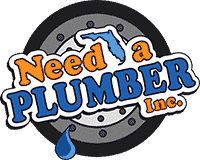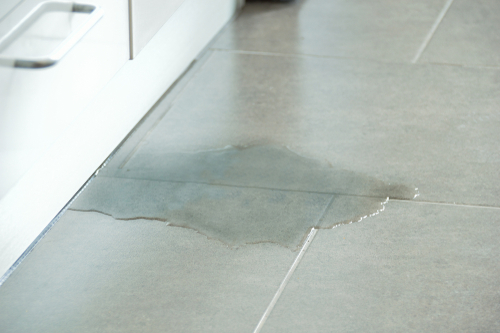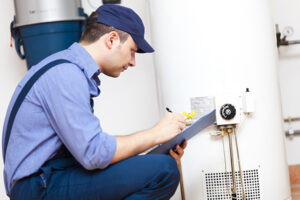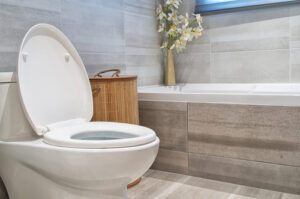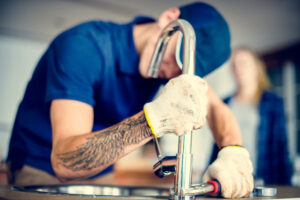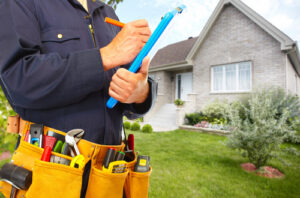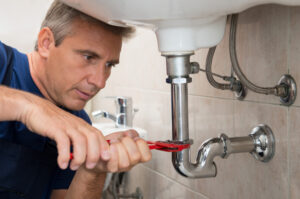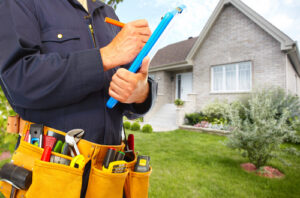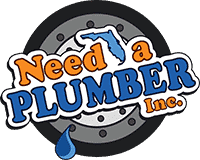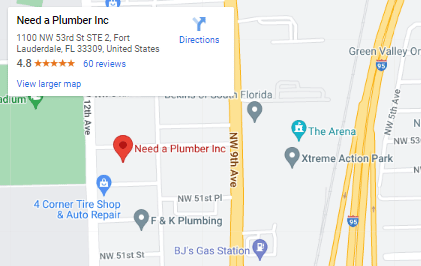Water leaks in your home can lead to costly damage and significantly increase your utility bills. Early detection and repair are essential to preventing long-term problems and maintaining the efficiency and integrity of your plumbing system. In this comprehensive guide, we will provide you with valuable information on how to identify and fix common water leaks within your home, helping you to be more aware of potential issues and minimize the risks associated with unchecked leaks.
Need a Plumber, Inc., a trusted and reliable plumbing service provider in Fort Lauderdale, FL, and the surrounding areas, is dedicated to assisting homeowners in maintaining efficient and functional plumbing systems. Our team of licensed, bonded, and insured technicians is experienced in detecting and repairing water leaks, ensuring your home’s plumbing operates at peak performance. Empower yourself with this valuable knowledge and trust Need a Plumber, Inc. for all your plumbing needs.
Common Types of Household Water Leaks
To effectively spot and fix water leaks in your home, it’s essential to familiarize yourself with the most common types of household leaks. These typically include:
- Faucet leaks: Dripping faucets can waste a significant amount of water over time, leading to increased water bills and potential damage to fixtures. Worn-out washers, seals, or valve seats often cause these leaks.
- Toilet leaks: Leaks in toilet tanks often stem from issues with the flapper valve or the fill valve. A running toilet may also indicate a leak.
- Water heater leaks: Corrosion, sediment buildup, or faulty pressure relief valves can contribute to water heater leaks, leading to potential damage and decreased efficiency.
- Pipe leaks: Damaged or deteriorating pipes, especially in older homes or during winter months, can lead to leaks in walls or under floors, causing significant water damage and potential mold growth.
How to Spot Water Leaks in Your Home
Water leaks can be difficult to detect, so it’s essential to know what signs to look for in order to catch them early:
- Unexplained increases in water bills: An unusually high water bill may be the first sign of a hidden leak somewhere in your plumbing system.
- Mold or mildew: Persistent mold or mildew on walls or ceilings can indicate a hidden water leak within these surfaces.
- Musty odors: Unpleasant smells, especially in areas with limited ventilation, can be a sign of hidden water damage or leakage.
- Stains or discoloration: Dark or damp spots on walls, ceilings, or floors may indicate a water leak.
- Warping or sagging: Leaks can cause damage to flooring, walls, and ceilings, causing them to buckle, warp, or sag.
- Pooling water: Retained water around appliances or fixtures may signal a nearby leak.
How to Fix Common Household Water Leaks
Once you’ve identified a water leak, it’s essential to take action promptly to minimize damage and potential hazards. The following steps can help address common household water leaks:
- Faucet leaks: Fixing a dripping faucet often requires replacing worn-out washers or seals. Shut off the water supply to the faucet, disassemble the handle, and examine the components for damage. Replace any worn parts and reassemble the faucet, ensuring everything is tightly sealed.
- Toilet leaks: To fix a leak involving the flapper valve, turn off the water supply to the toilet, remove the tank lid, and disconnect the flapper from the chain and overflow tube. Install a new flapper following the manufacturer’s instructions, and adjust the chain to ensure proper operation. If the fill valve is leaking, replace it with a new one that matches your toilet model.
- Water heater leaks: If your water heater is leaking, it’s essential to first turn off the power supply (either gas or electricity) to avoid potential hazards. Next, determine the source of the leak. If the issue is a faulty pressure relief valve or drain valve, a professional plumber can replace the faulty component. For leaks due to corrosion or a deteriorated tank, it’s likely time for a complete water heater replacement.
- Pipe leaks: For minor pipe leaks, tools like pipe repair clamps or epoxy putty can provide a temporary fix. However, it’s essential to contact a professional plumber for a permanent repair or pipe replacement, as DIY solutions may not hold up long-term.
Preventing Water Leaks in Your Home
Addressing potential issues before they escalate can save you time, money, and stress associated with water leaks. Implement the following preventative measures to keep your plumbing system in top shape:
- Regularly inspect appliances and fixtures: Frequently check all water-using appliances and fixtures for signs of leakage or wear. Promptly address any issues you find.
- Monitor water bills: Keep a close eye on your water bills for any sudden increases that may indicate a hidden leak.
- Perform seasonal maintenance: Inspect pipes, water heaters, and other plumbing components seasonally for signs of wear or damage. Drain your water heater annually to remove sediment buildup.
- Insulate pipes: In colder weather, insulate exposed pipes to reduce the risk of freezing and bursting. During the winter, maintain a consistent indoor temperature to help protect your plumbing system.
- Hire a professional plumber: Regular plumber inspections can identify potential plumbing issues before they become costly problems. Trusting a professional, like Need a Plumber, Inc., to perform routine maintenance can save you both time and money in the long run.
Secure Your Home with Need a Plumber, Inc.’s Leak Detection Services
In conclusion, being proactive in identifying and addressing water leaks in your home is crucial for maintaining a healthy plumbing system and avoiding costly damages. Familiarize yourself with common types of leaks, learn how to spot them early, and take appropriate measures to prevent them from occurring in the first place.
For expert leak detection and repair services in Fort Lauderdale, FL, and the surrounding areas, trust Need a Plumber, Inc. Our licensed, bonded, and insured team of professionals is experienced in addressing leaks, ensuring your home’s plumbing system remains efficient and reliable. For leak detection services and more, reach out to us today!
